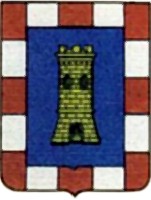Costanza d'Avalos, Duchess of Francavilla
Costanza d'Avalos | |
|---|---|
| Duchess of Francavilla Princess of Francavilla | |
| Born | 1460 |
| Died | 1541 |
| Noble family | d'Avalos |
| Spouse(s) | (1477-1483) |
| Father | Iñigo I d'Avalos |
| Mother | |

Costanza d'Avalos (1460–1541), Duchess of Francavilla, was an Italian ruler. She was the ruler of the Duchy of Francavilla between 1501 and 1541.
Life[]
She was the daughter of Innico I d'Avalos of the Spanish , count of Monteodorisio, and , heiress to the marquisate of Pescara. Her father had come to Italy with Alfonso V of Aragon in 1442.
She was given in marriage to , Prince of Altamura and Duke of Venosa, son of and brother of the Queen of Naples, Isabella.[1]

Duchess of Francavilla[]
After she was widowed without children, in 1483, King Frederick of Naples granted her the Duchy of Francavilla in 1501. She then followed her brother, , to Ischia, where he died in 1503.[1]
Later that year, she defended Ischia against the French for four consecutive months, with great skill and bravery. Her services were rewarded by the settlement of the civil and military government of the island on the d'Avalos family, which power it retained until 1734, when its military command was transferred to Naples.[2] She established her court at Ischia, which was frequented by many Neapolitan intellectuals of the period.
On 13 June 1507, she signed a marriage contract between her nephew Fernando Francesco d'Ávalos and Vittoria Colonna. The marriage took place on Ischia in December 1509. Vittoria, shortly after her marriage, spent her time on Ischia with Costanza.
In 1523 Charles V granted to Costanza the land which nowadays forms Pescara.[3]
She died in 1541, after Charles V had given her the title of Princess of Francavilla.
Literary influence[]
On Ischia, Costanza established a circle of literary friends around her, among which were the poet Vittoria Colonna, the wife of her nephew, Sannazaro, Paolo Giovio, Tansillo and Bernardo Tasso.[4]
She also became a follower of Juan de Valdés and attended his lectures and discussions at his house in Chiaia.
Legacy[]
Scholarly as well as amateur speculation has assigned the Mona Lisa's name to Costanza (among other women) - she was referred to as La Gioconda.[5]
References[]
- ^ Jump up to: a b Mutini, Claudio (1962). "Avalos, Constanza d', principessa di Francavilla" [Avalos, Costanza d', princess of Francavilla]. Treccani, l'enciclopedia Italiana. Dizionario Biografico degli Italiani (in Italian). Rome.
- ^ "Archived copy". Archived from the original on 2010-07-10. Retrieved 2010-10-14.CS1 maint: archived copy as title (link)
- ^ "Archived copy". Archived from the original on 2011-07-22. Retrieved 2010-10-14.CS1 maint: archived copy as title (link)
- ^ Robin, Diana Maury, Anne R. Larsen and Carol Levin (2007). Encyclopedia of Women in the Renaissance: Italy, France, and England. Santa Barbara, CA: ABC-CLIO. ISBN 9781851097722.
- ^ Wilson, Colin (2000). The Mammoth Encyclopedia of the Unsolved. Carroll & Graf Publishers. ISBN 0-7867-0793-3.
- D'Avalos family
- 1460 births
- 1541 deaths
- 16th-century women rulers
- Women in 16th-century warfare
